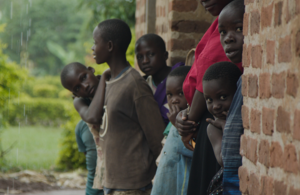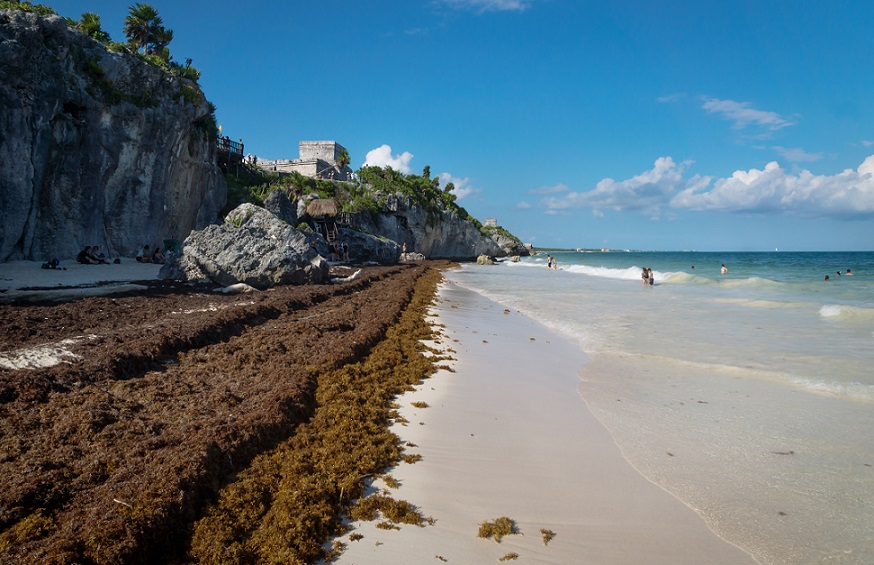Wednesday, 19 August 2020
The University of Nottingham has won two funding grants from the UK Space Agency for projects to tackle human trafficking and forced labour in Uganda, and clean up the coastline of Mexico.
Both projects, led by scientists in the University’s Faculty of Social Sciences, will use satellite Earth Observation technology to tackle global development problems.
Professor Doreen Boyd, of the Rights Lab, will work with Airbus Defence and Space, the University of Dundee and partners in Uganda, to support anti-trafficking efforts there. The project, known as Anti-trafficking using Satellite Technology for Uganda’s Sustainability (ASTUS), builds on Professor Boyd’s previous work, Fighting Slavery from Space, and expertise in using satellite imagery to take observations and measurements of Earth.
The ASTUS project will develop a stakeholder-informed Modern Anti-trafficking Support System (MASS), underpinned by satellite imagery and associated geospatial datasets, with the aim of enhancing Uganda’s anti-trafficking efforts and progress towards the United Nation’s Sustainable Development Goal, Target 8.7. The MASS aims to assist anti-trafficking decision-making and response at scales never seen before.
Trafficking in persons (TIP) is a global issue that affects millions of people and thus requires ingenious approaches to address. At the Rights Lab we have been working with our partners on a blueprint to ending the scourge of TIP and realising the potential of an Earth Observation approach to support anti-trafficking activity.
 ASTUS project
ASTUS project
Professor Boyd continued: “We are very fortunate to be working with our partners in Uganda, a country that is keen go above and beyond in its commitment to tackling TIP. What we achieve in Uganda should have global replicability, towards achieving the UN Sustainable Development Goal target of ending TIP by 2030, and achieving a ‘Freedom Dividend’ that benefits us all.”
Dr Betsabe de la Barreda-Bautista and Professor Giles Foody, of the University’s School of Geography, will lead the second project - SAtellite SArgassum Monitoring System (SASAMS) - to develop
a real-time monitoring service for Mexico’s Caribbean Coast, which has been seriously impacted by sargassum (brown macroalgae, more widely known as Mexico’s rotting seaweed), causing large-scale economic, environmental and ecological problems.
Predicting the arrival and managing the impact of sargassum, which turns clear sea water brown and smells of rotten eggs, has been cited as a priority for the Mexican government. However, there is limited understanding of sargassum beaching and how it is affected by changing sea conditions as a result of global warming. Researchers will deliver a system that is designed to detect and monitor the seaweed at scales that are relevant to local land users, giving early warnings, and to help to protect Mexico’s beaches and help enhance the resilience of its tourist industry.
The University is working with CentroGeo, CONABIO and UNAM in Mexico and SpectoNatura and TripleLine in the UK.
 Brown sargassum on Mexico's Caribbean coastline
Brown sargassum on Mexico's Caribbean coastline
Our international team is delighted to be working on the development of a satellite Earth observation based system to help monitor Sargassum seaweed and aid actions to address its negative consequences after beaching on the Mexican coast. We aim to show that a simple cost-effective and near-real time system can be developed to tackle such environmental problems from space.
Coinciding with World Humanitarian Day (19 August), the Nottingham projects are among 10 new cutting-edge programmes announced today by the UK Space Agency to tackle global development problems.
Science Minister Amanda Solloway said: “From flooding and climate change, around the world people continue to be affected by crises that are having a profound impact on their countries’ economies and their lives.
“These 10 new projects have the potential to provide solutions to the world’s biggest development problems by using the latest and most high-tech space technologies such as satellites, and help improve millions of people’s lives in developing countries.”
Story credits
More information is available from Professor Doreen Boyd in the Rights Lab at doreen.boyd@nottingham.ac.uk; or Betsabe De la Barreda-Bautista in the School of Geography at Betsabe.DeLabarreda@nottingham.ac.uk; or Katie Andrews in the Press Office at the University of Nottingham at katie.andrews@nottingham.ac.uk
Notes to editors:
About the University of Nottingham
Ranked 32 in Europe and 16th in the UK by the QS World University Rankings: Europe 2024, the University of Nottingham is a founding member of the Russell Group of research-intensive universities. Studying at the University of Nottingham is a life-changing experience, and we pride ourselves on unlocking the potential of our students. We have a pioneering spirit, expressed in the vision of our founder Sir Jesse Boot, which has seen us lead the way in establishing campuses in China and Malaysia - part of a globally connected network of education, research and industrial engagement.
Nottingham was crowned Sports University of the Year by The Times and Sunday Times Good University Guide 2024 – the third time it has been given the honour since 2018 – and by the Daily Mail University Guide 2024.
The university is among the best universities in the UK for the strength of our research, positioned seventh for research power in the UK according to REF 2021. The birthplace of discoveries such as MRI and ibuprofen, our innovations transform lives and tackle global problems such as sustainable food supplies, ending modern slavery, developing greener transport, and reducing reliance on fossil fuels.
The university is a major employer and industry partner - locally and globally - and our graduates are the second most targeted by the UK's top employers, according to The Graduate Market in 2022 report by High Fliers Research.
We lead the Universities for Nottingham initiative, in partnership with Nottingham Trent University, a pioneering collaboration between the city’s two world-class institutions to improve levels of prosperity, opportunity, sustainability, health and wellbeing for residents in the city and region we are proud to call home.
More news…